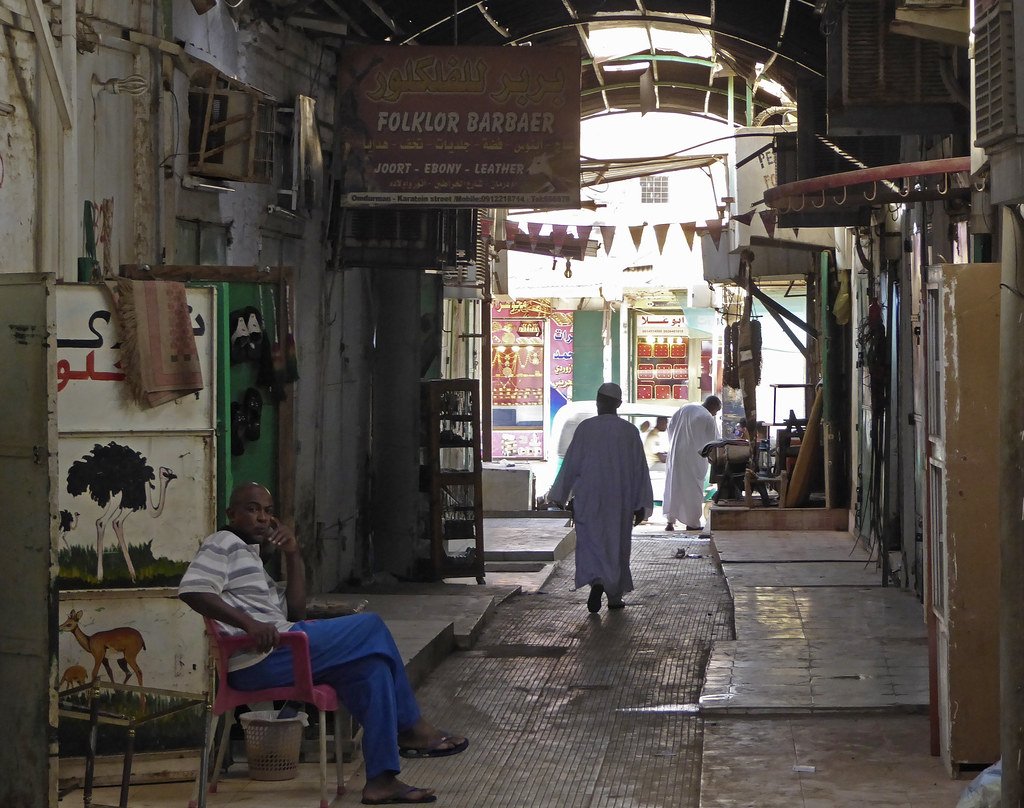On a fateful day in southern Khartoum, Sudan, what seemed to be an ordinary day at the market turned into a harrowing incident of violence and loss. An airstrike that decimated a bustling marketplace resulted in the death of at least 43 individuals and left 55 others grievously injured. The Sudanese Doctors Union reported the statistics on Sunday, further highlighting the severity of the incident. The aftermath of this tragic event raises several questions about the current political and security situation in Sudan.
Residents of southern Khartoum woke up to a morning just like any other. The sun was shining, and people were bustling around, preparing for a day at the market. Locals from all around the region came to the market to buy and sell goods, meet friends, and catch up on the latest news.
However, the jovial mood would soon take a turn for the worse. Without any warning, an aircraft was spotted, followed by the unmistakable sound of a missile being released. In mere moments, chaos and destruction ensued. The marketplace, once full of life and vibrant colors, was now a scene of dust, debris, and heart-wrenching cries.
Immediate Response and Medical Assistance
First responders rushed to the scene. The immediate priority was to locate survivors and provide urgent medical care. With a death toll of 43 and 55 injured, the medical facilities in the area were quickly overwhelmed. The Sudanese Doctors Union was at the forefront of providing medical care, diligently working around the clock to treat the wounded.
While many were treated onsite for minor injuries, those severely wounded were transported to nearby hospitals. Local community members volunteered, forming a human chain to carry the injured and making sure the most critical cases received immediate attention. Blood donation drives were set up in surrounding areas, and neighboring cities sent additional medical supplies and personnel to support the overwhelming need.
The airstrike on southern Khartoum did not occur in isolation. Sudan has a complex political history marked by coups, conflicts, and civil wars. The incident brought to light the pressing need to address the ongoing security issues and the potential internal and external threats facing the nation.
International reactions were swift. Many countries condemned the attack, calling for a full investigation into the incident. The global community’s immediate concern was to provide humanitarian aid to the affected region, but underlying this was the urgent need for political stability in Sudan.
Fatima, a local vendor, shared her traumatic experience, “I was selling fruits when I suddenly heard a loud explosion. Within seconds, everything turned black. When I woke up, I found myself under a pile of rubble. It’s a miracle I survived.”
Mohammed, another resident, said, “It felt like the ground shook beneath our feet. The once familiar sights of the market were replaced by fire and smoke. I will never forget that day.”
Such testimonies paint a picture of the sheer terror and confusion that reigned in those fateful moments.
Ongoing Investigations and Accountability
While the immediate concern is providing relief and medical care, there is an equally significant demand for a thorough investigation into the incident. Who was responsible for the airstrike? Was it a targeted attack, or was the market merely a collateral in a larger scheme of things?
The international community, along with the Sudanese government, has vowed to leave no stone unturned in their pursuit of answers. The citizens of Sudan deserve to know the truth, and those responsible must be held accountable.
The Road to Recovery
The physical destruction of the market is palpable, but the emotional and psychological scars will take longer to heal. Communities have come together, mourning the loss of loved ones and rallying around those affected.
Efforts are underway to rebuild the market and restore it to its former glory. However, the memories of that day will remain etched in the minds of those who lived through it. The resilience of the Sudanese people shines through as they rebuild, not just their marketplace, but their lives.
Conclusion
The tragic airstrike in southern Khartoum serves as a stark reminder of the volatile nature of the world we live in. While political disputes and territorial disagreements are inevitable, the innocent should never pay the price.
The healing process will be long and arduous, but with international support and the indomitable spirit of the Sudanese people, there is hope for a brighter, more peaceful future for Sudan.
Read More:
